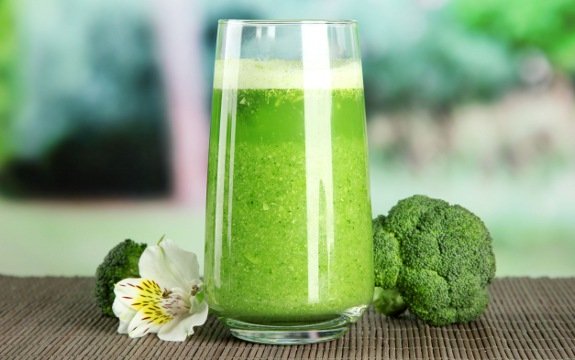Could Sunscreen be Replaced with This Topically-Applied Vegetable?

 While you might think you can get the best benefits of a food by eating it, a new study will test just how effective broccoli can be when you apply it to your skin. It sounds strange, but previous research has shown topically applied sulforaphane from broccoli sprouts to have amazing anti-cancer properties. Now, researchers are hoping to duplicate animal studies in humans in an effort to one day providing a new breed of skin cancer protection, one that comes directly from broccoli.
While you might think you can get the best benefits of a food by eating it, a new study will test just how effective broccoli can be when you apply it to your skin. It sounds strange, but previous research has shown topically applied sulforaphane from broccoli sprouts to have amazing anti-cancer properties. Now, researchers are hoping to duplicate animal studies in humans in an effort to one day providing a new breed of skin cancer protection, one that comes directly from broccoli.
As I reported earlier this summer, researchers with Johns Hopkins School of Medicine have been looking at the cancer-protection properties of sulforaphane for years. In 2007 they published some of their findings in Proceedings of the National Academy of Sciences.
“If you apply an extract of broccoli sprouts that contains high levels of sulforaphane to regions of human skin, you can protect them very substantially,” said lead researcher Paul Talalay. “We believe, to the best of our knowledge, that this is the first demonstration of protection against a known human carcinogen in humans.”
Read: Broccoli Compound Kills Leukemia Cancer Cells
Until now, their research has largely focused on the effectiveness of topically applied sulforaphane in mice. These mice were given the sulforaphane and then exposed to radiation. There was an average of 37% less irritation on the skin of mice who had been treated with the broccoli extract than with those with no broccoli application.
Now the Johns Hopkins team is joining forces with the University of Arizona Cancer Center to determine if the same benefits can be created in humans. The group will be testing a topical broccoli sprout solution on the skin of patients before exposing them to artificial light.
“Sulforaphane is the kind of compound that has so many incredible theoretical applications if the dosage is measured properly,” says researcher Sally Dickenson, assistant professor in the Pharmacology Department at the Cancer Center. “We already know that it is very effective in blocking sunburns, and we have seen cases where it can induce protective enzymes in the skin.”
Read: Sunscreen Causes Cancer?
The research is particularly exciting considering the toxic and carcinogenic nature of conventional sunscreens. It offers hope that conventional science will one day pay closer attention to the healing properties of plants and foods. Now we just have to cross our fingers that they don’t have ulterior motives—like making synthetic sulforaphane, patenting it, and selling it to the highest bidder.
Additional Sources:

As always the topic are very interesting.
With that I just want to say that Astaxanthin is not only a great antioxidant, but is probably the best natural sunscreen available, aside from light clothing as cover up when needed.
At least it is the best food source sunscreen available that also helps protect from radiation where ever we go.
Can I prevent cancer by jamming a bunch of broccoli up my backside?
If I need some lube, should I use Crisco or unicorn tears?